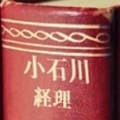Saks Fifth Avenue などを経営する米Saks社が、仕入先に不正なリベート(markdown money)を支払わせていたとして、3名の上級管理者を解雇したという記事。SECも調査しているようです。
以下、markdown moneyの説明です。日本のスーパーや百貨店と同じようなことをやっています。
In the traditional practice of collecting markdown money, retailers demand payment from suppliers to cover the cost of putting items on sale when demand is soft - or, at least, when the stores say it is. If the vendors do not go along, suppliers say, the retailers often threaten not to order their clothes again.
Vendors say the stores are increasing their demands, in their rush to bolster profits, and some privately label the practice blackmail and extortion.
関連記事
こちらの記事では、契約で定められていないリベートまで小売り側が要求するようになったため、メーカーも反撃に出ているといっています。日本の衣料品メーカーに関係のありそうな会社名も出てきています。
In many cases, stores have demanded money for reasons or amounts that suppliers never agreed to, which is illegal, Ellinger argued. Manufacturers initially complied, fearing they'd lose future business if they didn't. But retailers' financial demands have increased, prompting vendors to put up more of a fight.
The SEC's investigation was prompted in part by one of the retailer's former suppliers, Onward Kashiyama USA, which filed a suit a year ago claiming Saks took certain charges not allowed under the terms of their sales agreement.
リベートを返してもらえるメーカーもあるようです。返さなければならないようなリベートを利益に計上していたとしたら、たしかに粉飾であり、SECの出番ということになります。
Kashiyama is expected to be one of the suppliers who will be reimbursed. In its suit, Onward Kashiyama claims Saks owes $9.27 million, though the figure could now be as high as $13 million, according to Christopher T. Owen, attorney for Onward Kashiyama.
最近の「不正経理」カテゴリーもっと見る
最近の記事
カテゴリー
バックナンバー
2000年
人気記事



